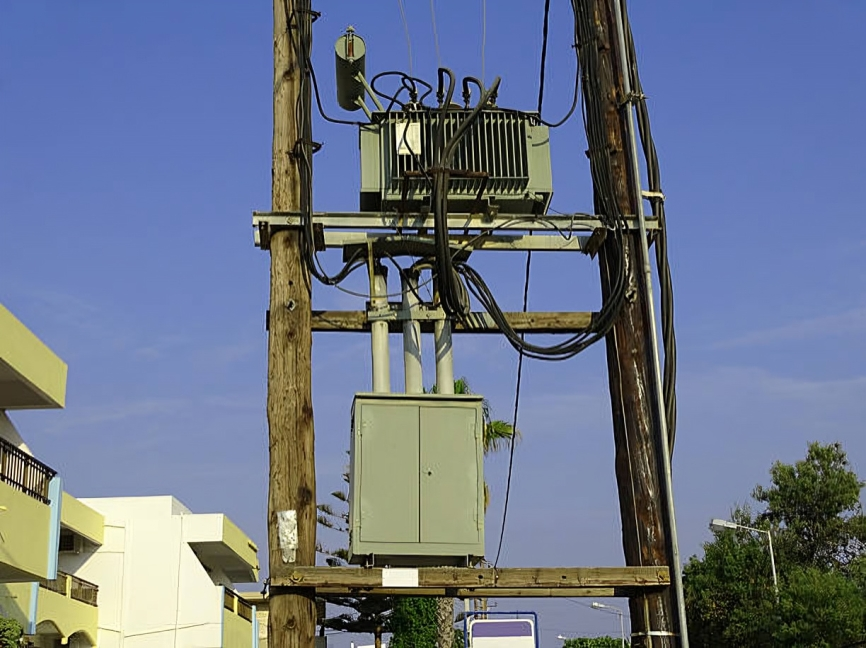For many Nigerians, the phrase “no light” is a daily reality. Across the country, millions struggle with epileptic power supply, while depending on costly generators and other sources of electricity to keep their homes and businesses alive.
But in Kwale, a community in Ndokwa West Local Government Area of Delta State, the situation is far worse. Here, residents have not had access to electricity for over fifteen years.
In a country where even brief blackouts spark frustration, Kwale’s story is a shocking one. Fifteen years of darkness, fifteen years of broken promises and fifteen years of adapting to life without a basic necessity many other parts of the world take for granted.
This means that entire generations have grown up without ever experiencing electricity. There may be children who have never studied under a light bulb, business owners who have never relied on stable power, and families for whom darkness is not temporary but permanent. For residents of the Kwale community, fifteen years without electricity can also be interpreted as fifteen years of disadvantage.
A Community in Darkness
Kwale is located in Nigeria’s oil-rich Niger Delta region, a place that contributes massively to the country’s energy sector. This irony is painful because while crude oil and gas flow from Delta State to power industries and homes across Nigeria and beyond, the people of Kwale remain in the dark.
Residents say the last time they saw electricity was in the early 2000s. Since then, there has been no supply from the national grid, no working transformers, and no flickering lights from NEPA (known as Power Holding Company of Nigeria) and now privatised into distribution companies). For the younger residents, the popular phrase “up NEPA” is strange. “For close to twenty years now, nothing like NEPA,” a resident said in a viral video by BBC.
The High Cost of Darkness
As humans, electricity is more than a convenience; it is the backbone of modern living. But without it, communities like Kwale pay the price in every sector.
-
Education: Students in Kwale study by candlelight, lanterns, or torches. Access to online learning and digital tools is almost non-existent, leaving young people at a disadvantage compared to their peers elsewhere.
-
Healthcare: Local clinics and even government hospitals operate under extreme strain. Basic facilities like refrigeration for medicines and power for life-saving equipment are unavailable without generators or solar panels.
-
Businesses: From hair salons and barbershops to welders and cold drinks sellers, small-scale businesses survive only through the constant hum of generators. For many, the cost of fuel and diesel eats deep into profits. According to a resident, this is why prices in the community are higher than they should be.
-
Households: Families spend thousands of naira monthly on different sources of electricity just to light bulbs, charge phones or generally power their households. In all of these, there are households that cannot afford other sources, leaving them to live fully in darkness.
The environmental impact is also very clear. The excessive use of petrol and diesel generators contributes to noise and air pollution, while kerosene lanterns release harmful fumes, putting residents at risk of respiratory illnesses.
Why has Kwale Remained Without Power for so Long?
The reasons for this are complex but are deeply rooted in neglect. Some residents say the community was cut off when transformers and lines became faulty and were never repaired.
Others blame this on abandoned government projects and a lack of political will. Despite being in an oil-producing region that fuels Nigeria’s economy, little to no investment has been made to restore power to Kwale.
Over the years, government officials and electricity distribution companies have made promises to address the crisis. Yet, residents complain that those promises often fade as quickly as they are made. For many in Kwale, hope has been replaced by frustration.
This neglect highlights mismanagement and poor infrastructure in the Nigerian power sector. It is no news that the national grid itself is fragile, with frequent collapses that plunge the entire country into darkness. But while most Nigerians at least experience intermittent supply, Kwale has been entirely abandoned.
Resilience and Alternatives
In the face of these challenges, Kwale’s residents have had to innovate and adapt because how else could they have survived close to twenty years of darkness? Some households, businesses, and hospitals have turned to solar energy for relief. Solar panels and kits now power light bulbs, charge phones, and, in some cases, run appliances. For families who can afford them, these provide a lifeline in the absence of grid electricity.
Entrepreneurs have also found creative solutions. Charging centres, where residents pay to charge phones and batteries, are a common sight. Those with larger generators provide services to others for a fee.
Yet these are only temporary improvisations. The cost of solar panels remains high for most families, while fuel prices continue to soar. Generators break down, and the truth is that many residents simply cannot keep up, especially in this economy.
A Call for Urgent Action
Electricity is not a luxury but a necessity. It powers education, drives businesses, sustains healthcare, and overall improves the quality of life. The continued blackout in Kwale is not just a technical failure; it is a human rights issue.
Local activists and residents are calling on the Delta State Government and the Federal Government of Nigeria to intervene urgently. Restoring electricity to Kwale would not only transform the lives of its people but also signal that the government is responsive to citizens’ needs.
For close to twenty years, the people of Kwale have lived in darkness. They have endured broken promises, struggled with costly alternatives, and suffered the consequences of neglect in a country that should do better. Until the lights come back on in Kwale, the community serves as a reminder of the stark reality that while Nigeria produces energy for others, many of its own people are left in the dark.
>

